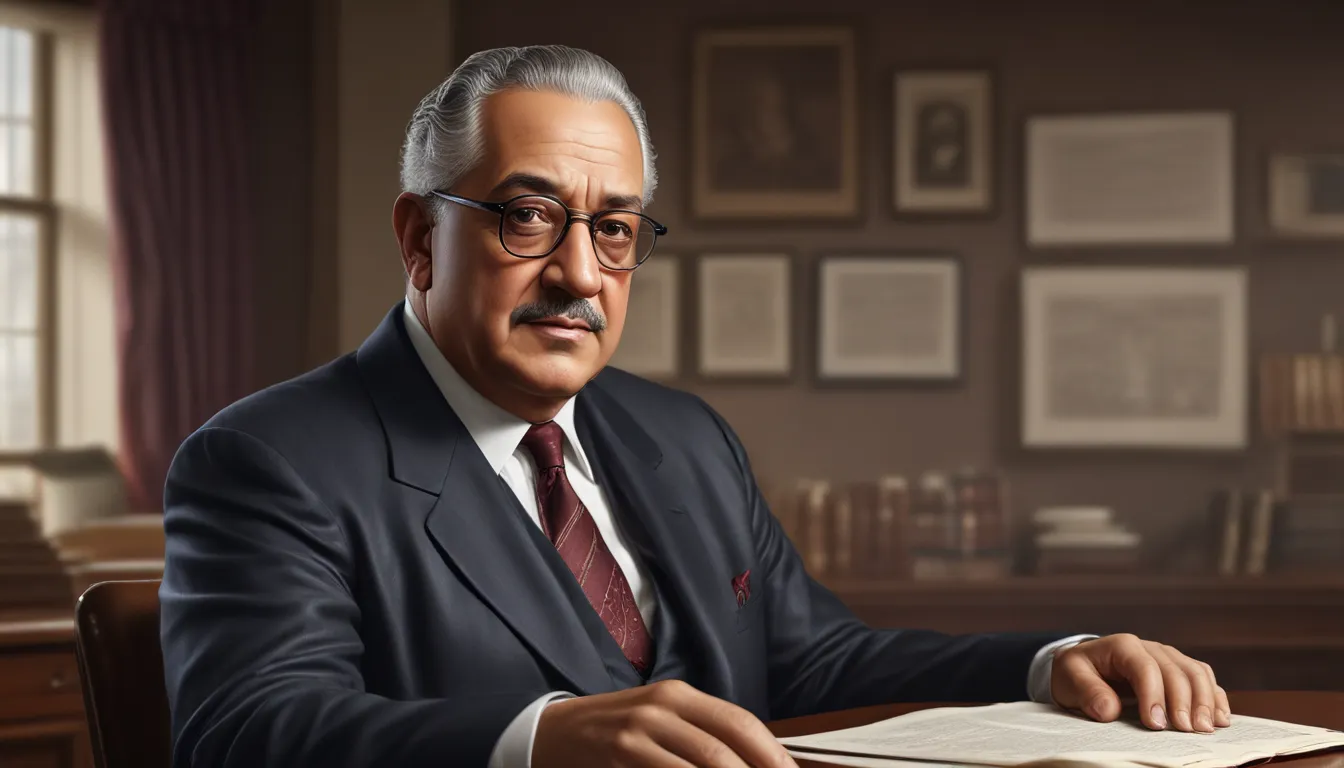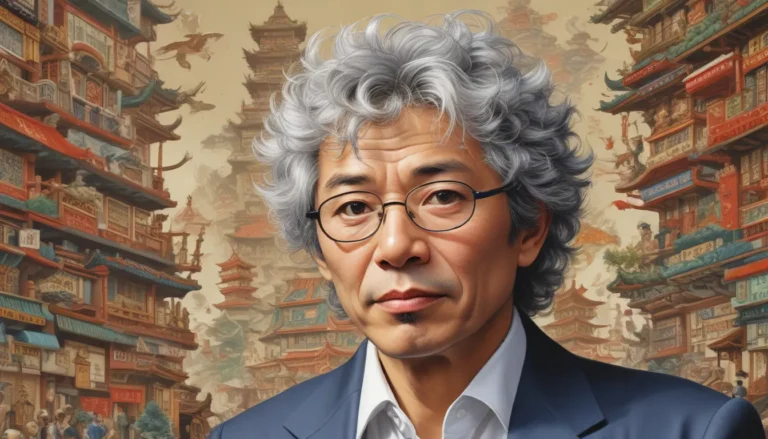The images in our articles may not match the content exactly. They are used to grab your attention, not to show the exact details in the text. The images complement the text but do not replace it.
Thurgood Marshall stands as a towering figure in American legal history, known for his tireless advocacy for civil rights and equality. As the first African American Supreme Court Justice, his impact on American society and law is immeasurable. From his early years in Baltimore to his groundbreaking legal victories and landmark rulings on the Supreme Court, Marshall’s life is a testament to the power of resilience, intellect, and the unwavering pursuit of justice. Join us as we explore 24 fascinating facts that paint a vivid picture of this legal luminary’s remarkable impact.
Unveiling Thurgood Marshall: His Early Life and Education
Thurgood Marshall’s journey towards becoming a legal icon began in Baltimore, Maryland, on July 2, 1908. His early years were marked by a deep commitment to fighting for equality and justice, shaped by his family’s history and upbringing.
- Baltimore Beginnings: Marshall was the grandson of a slave, a legacy that fueled his passion for justice and equality.
- Education: He excelled at Frederick Douglass High School in Baltimore, where his skills in debate were honed, foreshadowing his future legal career.
- Howard University: Marshall graduated cum laude from historically black Howard University, solidifying his dedication to civil rights causes.
The Legal Maverick: Thurgood Marshall’s Legal Career
Marshall’s legal career was characterized by groundbreaking cases and a fierce determination to challenge injustice, establishing him as a leading figure in the fight for civil rights.
- NAACP: In 1934, Marshall joined the National Association for the Advancement of Colored People (NAACP), where he would go on to become the organization’s chief legal counsel.
- Brown v. Board of Education: Marshall’s most famous case, argued in 1954, resulted in a landmark Supreme Court decision declaring segregation in public schools unconstitutional.
- Supreme Court Wins: Prior to his appointment to the Supreme Court, Marshall achieved an impressive record, winning 29 out of the 32 cases he argued before the highest court in the land.
The Trailblazer: Thurgood Marshall and the Supreme Court
In 1967, Thurgood Marshall made history as the first African American appointed to the U.S. Supreme Court, a pivotal moment in American legal history.
- Historic Appointment: Nominated by President Lyndon B. Johnson, Marshall’s appointment broke barriers and paved the way for greater diversity in the judiciary.
- Landmark Opinions: During his tenure, Marshall was known for his unwavering support of constitutional rights, particularly in the realms of civil rights and individual liberties.
- Retirement: Marshall served on the Supreme Court for 24 years, retiring in 1991 and leaving behind a legacy of advocacy and dedication to justice.
The Enduring Legacy of Thurgood Marshall
Thurgood Marshall’s impact on American society and law continues to reverberate, inspiring new generations to advocate for justice and equality.
- Education Advocacy: Marshall’s belief in education as a tool for empowerment remains influential, shaping initiatives like the Thurgood Marshall College Fund.
- Quotes: Marshall’s powerful quotes, such as “In recognizing the humanity of our fellow beings, we pay ourselves the highest tribute,” serve as enduring reminders of his commitment to equality.
- Posthumous Honors: Following his passing in 1993, Marshall received numerous tributes, including a postage stamp and schools named in his honor.
- Continuing Influence: Marshall’s legacy lives on through educational programs, cultural depictions, and his impact on the legal system both in the United States and globally.
Thurgood Marshall: A Legacy of Inspiration and Change
Thurgood Marshall’s legacy is one of inspiration and change, demonstrating the profound impact one individual can have on the course of history. His relentless pursuit of justice, his unwavering commitment to equality, and his groundbreaking legal victories serve as a beacon for all those who strive to make a difference through the legal system. Let us carry forward his legacy, embodying the ideals of justice, equality, and the belief that change is possible through courage and perseverance.
Exploring Thurgood Marshall: Frequently Asked Questions
Q: What made Thurgood Marshall a significant figure in American history?
A: Thurgood Marshall’s groundbreaking legal victories, including his role in the Brown v. Board of Education case, established him as a pivotal figure in the fight for civil rights and equality in America.
Q: How long did Thurgood Marshall serve on the Supreme Court?
A: Marshall served on the Supreme Court for 24 years, from 1967 until his retirement in 1991, during which he was known for his strong advocacy for individual rights and civil liberties.
Q: Before becoming a Supreme Court Justice, what was Thurgood Marshall known for?
A: Prior to his appointment to the Supreme Court, Marshall was renowned for his work as a lawyer for the NAACP, where he won numerous cases before the United States Supreme Court, dismantling racial segregation and advancing civil rights.
Q: Did Thurgood Marshall have any notable beliefs or philosophies?
A: Marshall deeply believed in the Constitution’s promise of equality and justice for all, frequently emphasizing the need for fairness and the protection of civil liberties in his rulings and opinions.
Q: Can you name a specific case, besides Brown v. Board of Education, where Thurgood Marshall made a significant impact?
A: One such case was Smith v. Allwright (1944), where Marshall successfully argued against white primaries, a crucial victory in the fight for voting rights and against disenfranchisement.
Q: How did Thurgood Marshall’s upbringing influence his career?
A: Marshall’s upbringing in Baltimore, Maryland, during a time of racial segregation and discrimination, instilled in him a deep commitment to justice and equality, motivating his lifelong dedication to fighting for civil rights.
Trustworthy Content, Engaging Insights
As we journey through the remarkable life and legacy of Thurgood Marshall, it is our commitment to deliver trustworthy and engaging content that resonates with our readers. Each fact shared here is a testament to the enduring impact of Marshall’s work and the legacy he left behind. Join us in exploring and learning from the diverse insights and information that continue to shape our understanding of history and justice.






